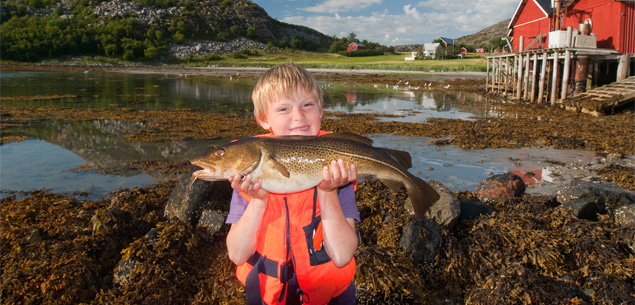Want to give your kids the best possible start in life? Feed them fish. If Dr Alex Richardson had her way, she’d make sure fish and seafood were on the menu in all homes at least twice a week, if not more. The University of Oxford senior research fellow, who’s a leading expert into the effects of omega-3 fatty acids on behaviour, learning and mood, can’t overemphasise the importance of fish oils, which contain these vital acids.
Recently in New Zealand to attend a Massey University symposium on omega 3s, Alex explains that everyone should be eating fish, but it is particularly crucial that children and pregnant women include it in their diets. Fish – in particular oily fish such as salmon and tuna – are a brilliant source of EPA and DHA, two types of essential fatty acids. This is the particularly good stuff and plant sources of omega 3s, such as flax oils, aren’t as effective, says Alex.
So what’s the big deal about fish oils?
The role omega 3s, and in particular DHA and EPA, play in general health for both adults and children has been recognised since the 1990s. They can help with the health of the immune system, heart and circulation, and are important for good vision. Research also suggests they may be able to improve symptoms of mental illnesses, such as depression and even schizophrenia, and also help with conditions such as Alzheimer’s. In children, these fats are vital for brain health and behaviour. Some research shows that they may boost memory and concentration, ease symptoms of ADHD, such as hyperactivity, and reduce inflammation associated with asthma. Meanwhile, low levels of omega 3s are often found in children who have autism and learning disorders, and some trials show increasing their intake of omega 3s can help with symptoms. In a recent Australian trial, pregnant women who took DHA supplements derived from fish oil had a reduced risk of having postnatal depression and babies that were premature or a low birth weight. Their risk of having a baby with development delays was reduced by 60%. Meanwhile, babies born to women in the study were less likely to develop eczema or an allergy to eggs.
But shouldn’t fish be avoided because of mercury levels?
“That’s a myth I’m keen to explode,” says Alex, who has extensively reviewed all the research into the dangers of mercury in fish, including a major study involving 15,000 mums and children. “What’s been found is that the proportion of mercury in fish is minimal and the benefits to be gained from the omega 3s in fish far outweigh any risks.” She says following advice to avoid fish during pregnancy has meant a lot of women have been eating no fish at all or restricting their portions, and that’s had a detrimental effect on their babies. “You will get a lot more damage from not eating fish oils than eating them.” If mums-to-be are still concerned about the risk of mercury poisoning, she recommends taking a supplement. Pregnant women should not eat raw or smoked fish or seafood because of the listeria risk.
How much fish should you be giving your kids?
One portion of fish a week, preferably oily fish such as tuna or salmon, is the absolute minimum. Two is better, but if you can feed them three or four that’s what you should be aiming for, says Alex. “When you consider that in a week you have 21 meals, making four of those with fish is not that much.”
But how do I get my kids to eat it?
Alex has these suggestions:
Keep cans of tuna in the pantry and include this fish in meals several times a week (for example, tuna and salad rolls or tuna-cheese pasta bake). “A few nutrients will be lost in the canning process but it’s still a good source of omega 3s.” Tuna in spring water is best, but brine is okay if the salt is rinsed off. Avoid tuna packed in oil.
Lead by example. Let your kids see you eating and enjoying fish and seafood.
Treat everyone to a salmon steak instead of a piece of red meat. Substitute smoked salmon for bacon in a quiche, for example.
Encourage your kids to eat sashimi or sushi with smoked salmon or tuna.
Getting older kids to cook meals themselves may help encourage them to eat more fish. They may enjoy stir-frying prawns, for example.
If your child turns their nose up at real fish, try fish fingers. Even processed fish products are better than nothing, says Alex. “And they are certainly better than those odious chicken nuggets.”
If you really can’t get them to eat fish, give them supplements. “But make sure you use a good quality one – there’s a lot of rubbish out there. Look for ones that are used in clinical trials, and make sure it says it has EPA and DHA.”
Feeding the mind
Dr Alex Richardson is a former school teacher turned researcher. She became interested in the link between nutrition and children’s behaviour and learning after observing problems some of her pupils were having with concentrating and acting impulsively. She has written a book called They Are What You Feed Them, and set up the charity FAB (Food And Behaviour) Research. Seefabresearch.orgfor more information.





